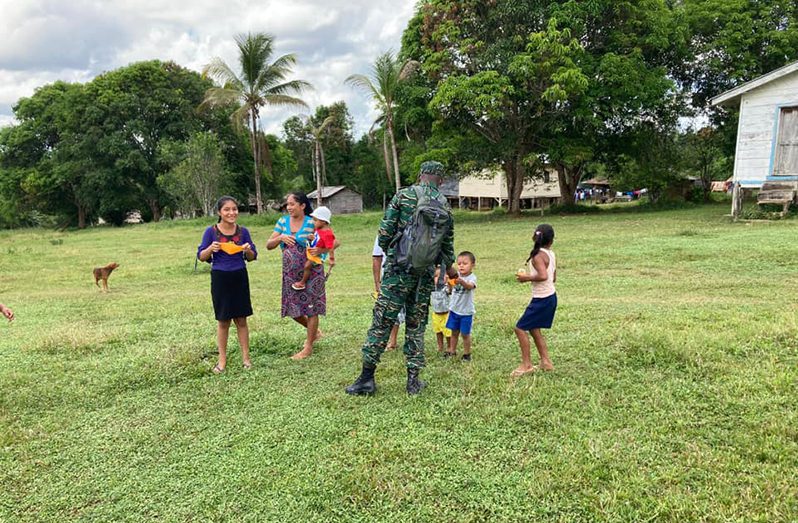By Rhonda Winter
RESIDENTS of Deep South, Rupununi, Region Nine, received Government’s COVID-19 cash relief grant of $25,000 during the month of September, much to their relief in light of the harsh life brought about by the pandemic.
Although the pandemic, which is sweeping the world with devastating effect on countries worldwide, did not cause major problems in the South Rupununi communities, local lockdown precautionary measures brought on economic hardships for most households.
Strict lockdown curfews caused trade and businesses to drop dramatically in the Rupununi, a region that harbours villages that are far flung and often hard to access. Families found it hard to make an income under the imposed curfews. People rely on farming and trading agricultural produce to make a living. But with markets and most travelling restricted, people could not carry on normal economic activities.
Also, with the lockdown and curfews in effect, businesses in the region could not retain employment of workers.
Guyana Chronicle spoke to residents to have their views on the cash grants received, and they related that the initiative taken by the Government “has been really helpful because people were given the freedom of choice of how to use the cash given to them; even though some people thought it wasn’t a great idea since a relief package, with hampers for example, would have been better and less risky,” one man said.
“I was really happy because nobody would give you $25,000 freely like that. I not only used the money to buy food supplies, but I was also able to purchase a pipe to get water into my yard instead of going outside to get water from the main pipe where persons usually gathered and who could be infected and transmitting the virus,” another resident related.
The cash grant initiative was also welcomed during this crucial time for the region, because it gave local businesses a boost since local entrepreneurs depended on the residents as customers to support their businesses.
“I personally think that the businesses were impacted the most, since if nobody buys from us then we won’t be able to support the villagers when they bring their farm produce, or the ranchers when they have meat to sell, you know; so when the $25,000 cash grant was distributed, our businesses benefitted a lot and we were able to have most of the cash circulate in our villages,” a senior businessman said.
And a farmer related that “I felt really happy because I would usually travel to neighbouring villages and sell my farm produce but since the lockdown I wasn’t able to do that so I couldn’t gain an income and I could not afford to buy other things like salt, sugar and soap that I needed from the shop. So this cash grant really helped me a lot and I am really thankful to the Government for this.”
Deep South Rupununi to date is one of the few areas in Guyana that is COVID-free thanks to local radio broadcasters, doctors and staff of Aishalton District Hospital, the police and the councillors. However, the villagers are not taking any risks. Residents had erected gates and fences around villages, which continue to be guarded and anyone entering the villages are placed on two weeks of quarantine.
Central Rupununi, however, was heavily affected, with one theory claiming the reason may be because this area is closer to the town of Lethem and neighbouring City of BomFim, Brazil. The cases have since then been fluctuating as residents continue to follow protocols and guidelines.
The Indigenous people of Deep South Rupununi were among the first hinterland communities to receive the COVID relief cash grant, and they unanimously said that “this initiative has been really helpful and greatly appreciated during this time of crisis”.


.jpg)











